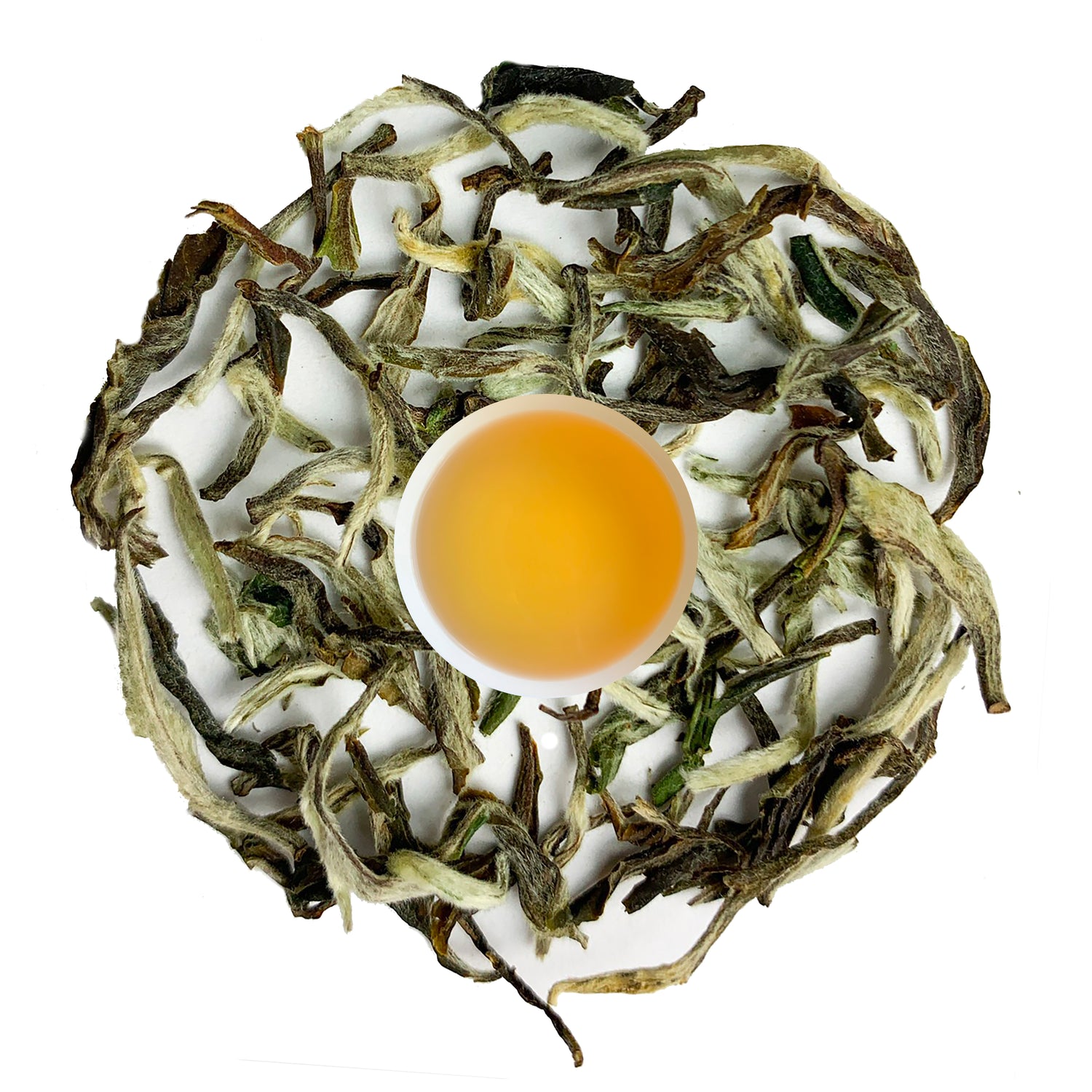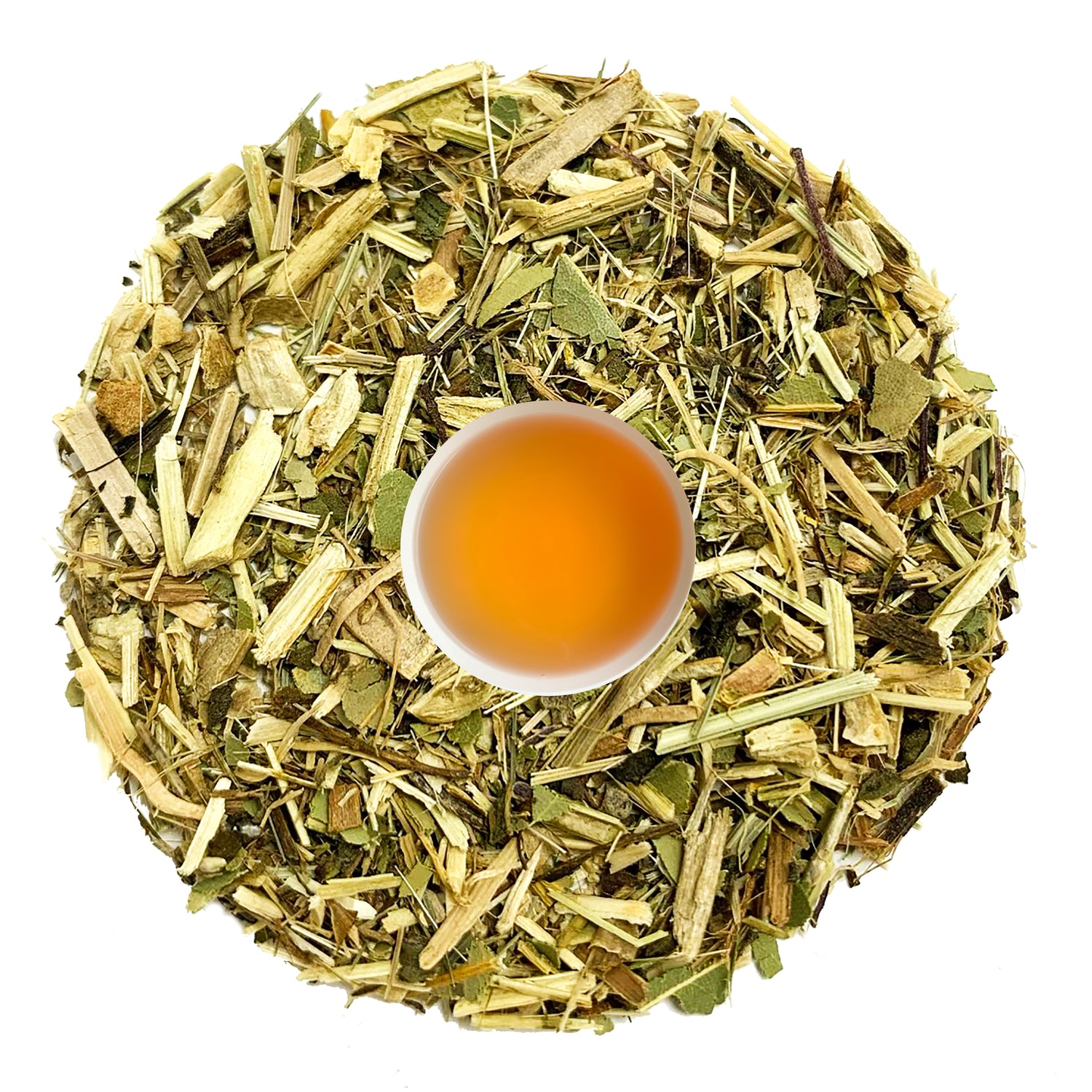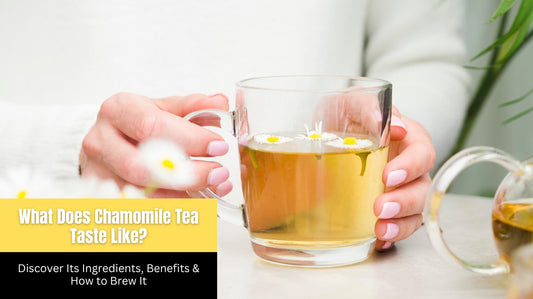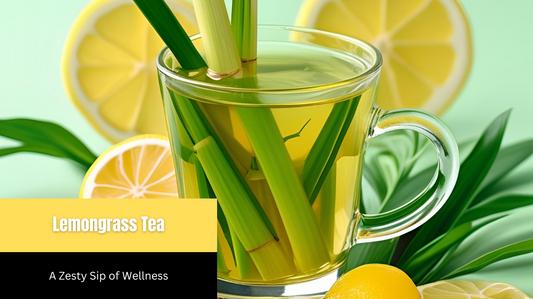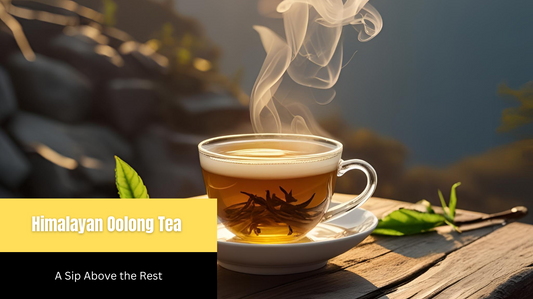
Unlock the Daily Tulsi Ritual: Sacred Basil Tea Benefits for Everyday Wellness
Tulsi Tea Benefits: Unlocking the Wellness Power of Sacred Basil
Hello, wellness seekers! It’s time to talk about a tea with a rich history and even richer health benefits. Holy basil tea—also known as tulsi, or Ocimum tenuiflorum—is a powerful herbal brew with a long legacy in Ayurveda. Known as the "Queen of Herbs," tulsi is a sacred medicinal herb revered for its deep healing properties.
If you’re looking for a simple, natural way to support your body and mind, tulsi tea benefits may be exactly what you need. From managing daily stress to boosting immunity and improving digestion, this tea is a daily wellness ritual you can feel good about.
Let’s explore the profound benefits of holy basil, how it works, and how a daily cup can transform your well-being.
What Is Tulsi (Holy Basil)?
Tulsi is a sacred herb native to India, where it is a cornerstone of traditional medicine and spiritual practices. It’s important not to confuse it with the sweet basil used in Italian cooking. Tulsi is a distinct plant with unique therapeutic properties.
Its power comes from its high concentration of adaptogens, antioxidants, and anti-inflammatory compounds.
- Adaptogens: These compounds help your body adaptogen herb to and manage stress. They work by balancing stress hormones like cortisol, helping your system stay calm and balanced.
- Antioxidants: Tulsi is rich in antioxidants such as eugenol and ursolic acid, which fight inflammation and oxidative stress in the body.
- Essential Oils: The herb contains potent essential oils that provide natural antimicrobial and calming effects.
In short: Tulsi helps your body adapt to stress, stay balanced, and heal naturally, which is a key part of its benefits of holy basil.
What’s Inside a Cup of Tulsi Tea?
When you steep tulsi leaves, you unlock a wellness formula backed by both ancient tradition and modern science.
Nutritional Snapshot:
|
Compound |
Benefits |
|
Eugenol & Ursolic Acid (antioxidants) |
Fights inflammation and oxidative stress |
|
Vitamins A, C, K |
Boosts immunity, skin health, and cell repair |
|
Minerals (Iron, Zinc, Calcium) |
Strengthens bones, supports immunity, improves oxygen flow |
|
Essential Oils |
Natural antibacterial and calming effects |
|
Adaptogens |
Regulate stress response and hormonal balance |
Pro Tip: Choose organic loose-leaf tea like Danfe’s Organic Tulsi Tea to get the highest potency and cleanest brew.
7 Health Benefits of Tulsi Tea
Tulsi's reputation as the "Queen of Herbs" is backed by centuries of use and modern science. Here are the top tulsi benefits you can experience by making this tea a daily ritual.
1. Reduces Stress and Promotes Calm
Tulsi is a renowned adaptogen. It helps your body manage physical and emotional stress by regulating cortisol levels. For those dealing with a chaotic schedule, a cup of tulsi tea can act as a gentle reset button. Its calming properties help reduce anxiety, improve focus, and promote mental clarity.
Benefits:
- Calms anxiety and nervous energy
- Improves focus and mental clarity
-
Acts as a grounding ritual during chaotic days
Think of tulsi tea as nature’s gentle reset button.
2. Supports Digestion and Metabolism
Are you experiencing bloating or indigestion? Tulsi can stimulate your digestive system and support a healthy metabolism. It helps ease mild stomach cramps, relieves bloating, and encourages proper fat metabolism. This makes it an excellent choice for a post-meal beverage.
How it helps:
- Eases bloating and indigestion
- Encourages fat metabolism
-
Relieves mild stomach cramps
Try this: Add a slice of ginger or lemon for extra digestive support.
3. Balances Blood Sugar and Blood Pressure
Research and animal studies suggest that holy basil can positively impact how the body processes sugar. It may improve insulin sensitivity and help regulate blood glucose levels. Furthermore, some studies suggest that holy basil may also help regulate blood pressure, contributing to overall cardiovascular health. Note: Always consult your doctor before using herbal supplements if you are managing diabetes or high blood pressure.
Evidence-based perks:
- Helps balance insulin sensitivity
- May lower fasting blood glucose
-
Supports pancreatic function
Note: Always consult your doctor if you’re managing diabetes.
4. Boosts Skin and Hair Health
Tulsi tea’s anti-inflammatory and antibacterial properties make it a natural ally for glowing skin and strong hair. It can help reduce acne and blemishes, promote collagen production for youthful skin, and even be used as a calming hair rinse.
Skin & Hair Wins:
- Reduces acne and blemishes
- Promotes collagen production for youthful skin
-
Can be used as a cooling toner or hair rinse
5. Strengthens the Immune System
With its high content of Vitamin C, zinc, and iron, tulsi is an immune-boosting powerhouse. It helps your body fight off colds and coughs, boosts white blood cell activity, and supports your overall health, giving your immune system the strength it needs.
Immune benefits include:
- Boosting white blood cell activity
- Fending off colds, coughs, and mild infections
-
Supporting faster
6. Improves Respiratory Health
Whether you're dealing with a sore throat or seasonal allergies, tulsi tea can provide natural relief. Its decongestant properties help clear congestion, while its anti-inflammatory effects can soothe coughs and calm throat irritation.
What it does:
- Clears congestion with its natural decongestant oils
- May reduce asthma-related inflammation
-
Calms coughs and throat irritation
7. Balances Hormones and Eases PMS Symptoms
Tulsi’s adaptogenic qualities extend to hormonal balance. For many women, it can be particularly helpful for easing menstrual cramps, soothing mood swings, and promoting a state of hormonal equilibrium during PMS.
Especially useful for:
- Easing menstrual cramps
- Soothing mood swings
-
Promoting hormonal equilibrium during PMS
Many women describe tulsi tea as a warm, calming hug in a cup.
How to Brew and Enjoy Tulsi Tea
To get the full range of holy basil benefits, brewing your tea correctly is important.
How to Brew:
- Hot Brew: Bring one cup of water to a boil. Add 1 teaspoon of dried tulsi leaves (or 5-6 fresh leaves). Steep for 5-7 minutes. Strain and enjoy. You can add a bit of honey, lemon, or ginger to enhance the flavor.
- Cold Brew: Add 2 teaspoons of tulsi leaves to 2 cups of cold water. Let it steep in the refrigerator overnight. Strain and serve over ice with a slice of lime or a sprig of mint.
Best Time to Drink:
- Morning: For calm energy and mental clarity.
- Afternoon: To help with digestion after a meal.
- Evening: To wind down and reduce stress before bed. Aim for 1-2 cups daily to maximize the effects of holy basil.
Is Tulsi Tea Safe? Important Precautions
Tulsi is generally safe for most people, but there are a few important things to consider, especially if you have a specific health condition.
- Pregnancy and Breastfeeding: Consult a healthcare professional before consuming tulsi.
- Blood Thinners: Tulsi may have mild blood-thinning effects. If you are on blood thinners, consult your doctor.
- Blood Sugar: As tulsi can lower blood sugar, individuals with diabetes should monitor their levels closely.
Why Choose Danfe Tea's Organic Tulsi Tea?
At Danfe Tea, we believe in providing the purest and most potent herbs. Our tulsi tea is:
- 100% Organic: Grown without pesticides in the pristine, high-altitude regions of the Himalayas.
- Ethically Sourced: We support sustainable farming practices.
- High Potency: Our loose-leaf tea offers the fullest flavor and maximum benefits of holy basil.
Ready to embrace this ancient wellness ritual? Shop Danfe Organic Tulsi Tea today and discover the soulful benefits of the "Queen of Herbs."
Shop Tulsi Tea from Danfe
Looking for the best tulsi tea? Danfe offers:
- Organic loose-leaf tulsi for full flavor and strength
- Grown in clean, high-altitude Himalayan regions
-
Great alone or blended with lemongrass, rose, or ginger
👉 Shop Danfe Organic Tulsi Tea
FAQs About Tulsi Tea
Q: Is tulsi the same as sweet basil?
No. Tulsi (Ocimum sanctum) is medicinal; sweet basil is used in cooking.
Q: Does tulsi tea have caffeine?
No, it’s naturally caffeine-free.
Q: Can I drink it every day?
Yes—1 to 2 cups daily is great for most people.
Q: Can I drink it during pregnancy?
Consult your doctor before using any herb during pregnancy.



